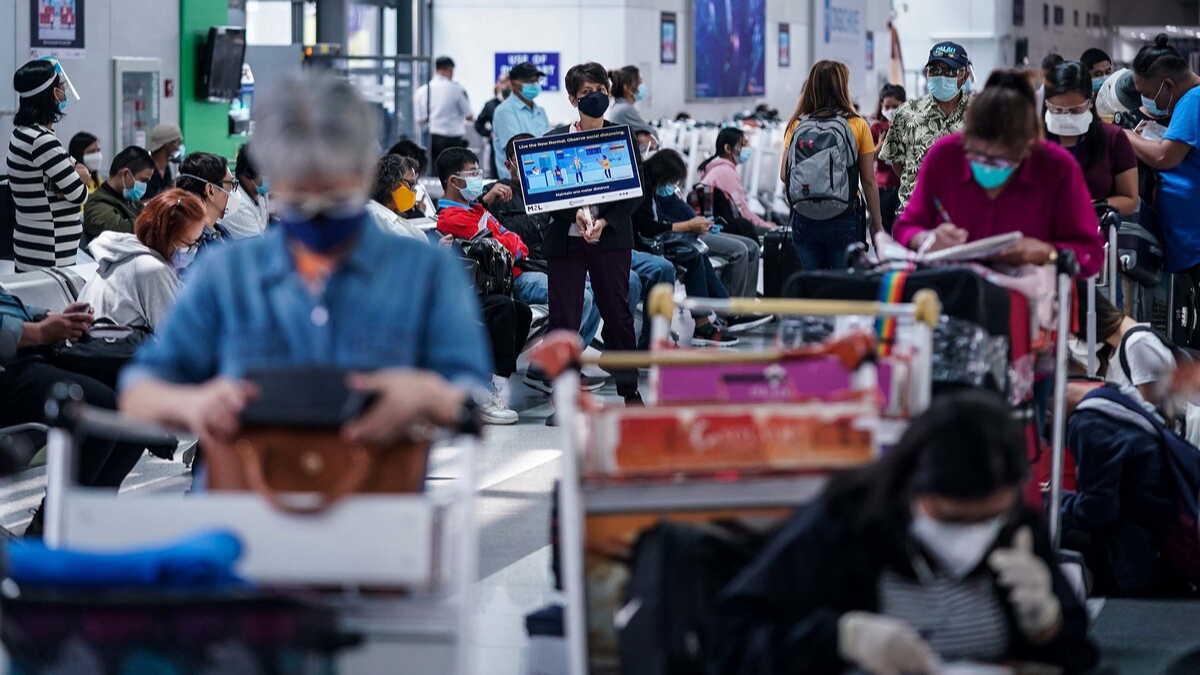Overseas Filipino Workers (OFWs) have been sharing their reactions and suggestions regarding the upcoming privatization of Ninoy Aquino International Airport (NAIA). With thousands of OFWs using Philippine airports daily to travel between their workplaces and homes, the impending turnover of NAIA’s operations to NEW NAIA Infrastructure Corp. on September 14 has stirred both hope and concern.
When The Global Filipino Magazine posed the question “Anong pagbabago sa NAIA ang inaasahan ninyo? May suggestion ba kayo?” on Facebook, nearly 100 OFWs, mostly based in the Middle East, eagerly responded.
Long-time Dubai resident Ron Awa shared detailed suggestions for improving the airport experience:
“Here are some of the key points to consider in order to improve the airport experience:
Immigration counter: Increasing the number of operational counters from ten to 20 or more would help reduce waiting times for passengers. Additionally, having a dedicated officer available for secondary assessments when necessary would enhance security measures.
Restaurants: Introducing a variety of major restaurant outlets similar to those at Dubai Airport would cater to passengers’ diverse culinary preferences and provide enticing offers.
Passenger lounge: Providing dedicated lounges for departing and arriving passengers, equipped with amenities like shower rooms and changing facilities, would greatly benefit travelers, especially those coming from afar to catch international flights.
Taxi service: Encouraging the use of airport taxis and implementing a standardized flag down system, similar to the one used at Dubai Airport, would streamline the taxi service for passengers.
Airport staff: Having a reputable handling agent such as Dnata manage the airport staff would help ensure efficient and professional service.
Air conditioning: Installing a standby generator to ensure uninterrupted air conditioning in the airport, even during power outages, would enhance passenger comfort and safety.
Employment opportunities: Offering employment opportunities for returning Overseas Filipino Workers (OFWs) to work alongside Ramon Ang would not only improve airport efficiency but also contribute to minimizing corruption within the terminal.”
Other OFWs voiced their concerns as well. Wendel Andrade Pacay remarked, “Yung mga balak umalis ng bansa sana hnd higpitan by means of kumpleto ang papeles or kung magbabakasyon man higpitan nila ung mga may record na na napauwe dahil sa paggiging TNT or walang papel na nagwowork galing sa ibang bansa.”
Katty RE expressed frustration over current inefficiencies, saying, “Yung kaayusan ng airport, at tanggalin mga pahirap na immigration na walang ibang alam kundi magngurakot ng pera sa tao… gawing mas convenient para sa lahat.”
Many OFWs also highlighted operational issues, with Evieeh Gieeh urging authorities to “Pabilisin ang pila sa mga counter check in & most especially sa immigration para sa mga departing flights lalo na sa OFW lane.” Similarly, Paul Alvarez criticized the overall government system, warning that “palapit na ulit tayo sa worst airport in the world simula ng maupo si Bongbong Marcos.”
The privatization, led by a consortium spearheaded by San Miguel Corporation and South Korea’s Incheon International Airport operator, aims to modernize NAIA’s infrastructure, enhance passenger experience, and contribute to the Philippines’ tourism and economic growth. However, challenges such as potential cost increases and regulatory oversight remain key concerns for both OFWs and other passengers.






